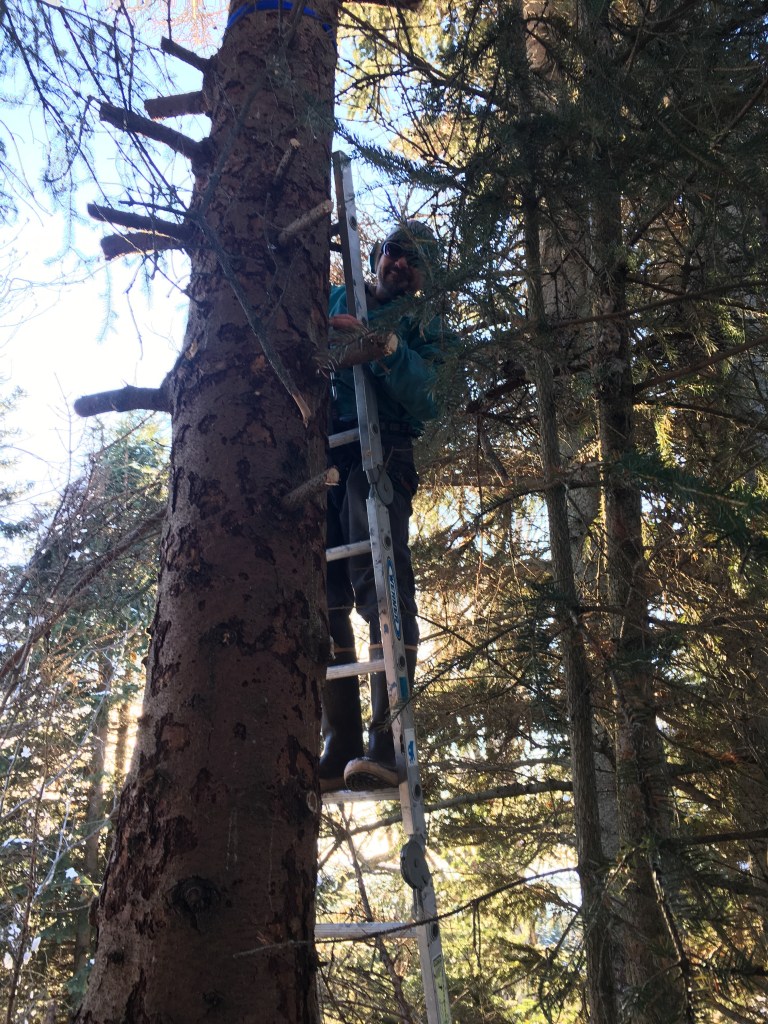
Week 14:
Late Friday afternoon on my lunch break I took a walk on the beach. I only had twenty minutes so I set the timer on my phone for ten minutes and walked one direction until the alarm sounded, then turned back. The tide was just a foot or so below its highest point of the day and I followed the line of driftwood and seaweed that the sea had recently deposited. I’ve walked on the beach several times over the past few weeks, but most days it’s been overcast. On this particular day the sky was blue and the sun was bright and reflecting off the water. When sunlight hits your retinas it sends a signal to your brain to produce serotonin, but even without the technical explanation all that light felt like medicine.
After reading To Speak for the Trees last week I was eager to learn more from the author Diana Beresford-Kroeger and I searched online to see what was available. I found a podcast called “For the Wild” produced by Ayana Young that has Diana Beresford-Kroeger as a featured guest. The two women cover a lot of ground in the interview, but one of the asides that Ms. Beresford-Kroeger offers has to do with kelp. Those of the Fucus species she said, when rubbed against the skin, give the body a boost. This was an old Celtic traditional health practice that can now be explained in scientific terms. Bladderwrack is the common name for our local Fucus species and it has inflated bladders that are filled with a water soluble mucilaginous substance that’s loaded with all kinds of lipids, amino acids, vitamins and minerals, one of which is iodine that helps regulate the thyroid. According to Beresford-Kroeger, rubbing the substance into the skin is like “adding oil to an engine” and makes everything run more smoothly.
Strolling along the tide line with all the washed up kelp at my feet I scanned for Bladderwrack even though it’s not the right time of year for harvesting it. Most of what I saw was bull kelp (nereocystic luetkeana) that had rolled onto shore with recent storms, along with plenty of other species I’m not familiar with yet. While I’ve spent a lot of time learning about the wild plants that grow on land around here, the plants of the sea are new territory. For once my focus at the beach was not just on rocks.
Almost every time I leave the beach I’ve got one or two rocks in my pocket. I collect them for reasons that are beyond reason. Sometimes I imagine using them to border a garden bed but most often there is just a compulsion to pick them up, feel their smooth contours, admire their individuality. The concept of infinity is difficult to fathom, but the rocks on the beach in all their various shapes, colors, sizes, and compositions inch me closer to understanding. To give my attention to one rock out of the millions, billions, trillions that are available, is a study in singularity. Occasionally I try to imagine the geological and geographical journeys a rock has been on and even though I can’t really, just the trying puts time in a whole different perspective. A twenty minute walk, a work day, a week, a month, a year, a decade, a century, a millennium. For those of us that are fleshy and prone to decomposition, time is not the same thing as it is for a rock. Maybe this is why my windowsills are lined with them.
After my twenty minute walk on the beach I went back to the library to finish out my work day. When six o’clock rolled around and it was time to leave I discovered that my phone was missing. The last place I’d used it was at the beach when my ten minute alarm went off. It wasn’t quite dark yet, so I decided to head back to the beach to retrace my steps, but as I was pulling out of the library parking lot and saw the police station directly across the street I figured it wouldn’t hurt to stop in to see if anyone had turned it in.
I told the attendant at the front desk that I’d lost my phone at the beach and she asked my name. Within minutes of noticing they were gone my phone and the case I keep it in that contains various cards and my driver’s license were back in my hands.
It was a small thing in the big scheme of things, to be lucky that way. Lucky that the tide had been high when my phone fell out of my pocket, lucky that the person who found it was kind enough to turn it in, lucky that my hunch to check the police station saved me from a fruitless search at the beach.
If I’d lost my phone forever, along with my driver’s license and cards, it would have been disrupting and a hassle, but I’d still consider myself lucky. I think about this in terms of the times we’re living in. Every time I read the news or spend much time on social media I am reminded of all the ways I could spend my time fretting. But I am alive. There is always more to learn, more to consider. There are an infinite number of relationships to cultivate—with people, with plants, with the ocean, with the seasons, with the elements. The possibilities for expansion and wonder are limitless and learning to look at life this way is a kind of medicine. It’s like adding oil to the engine.
***
Photos: Sunday afternoon, unexpected brush cutting/burning/rejuvenating.




